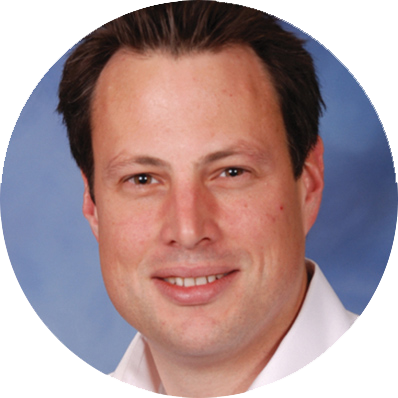Cambridge Healthtech Institute’s Inaugural
Advances in Recovery and Purification
Optimizing Methods and Reducing Bottlenecks in Downstream Processing
21-22 March 2018 | Sheraton Lisboa Hotel & Spa | Lisbon, Portugal
As cell culture titers rise, downstream processing (DSP) teams are under increasing pressure to recover as much product as possible, reduce timelines and minimize bottlenecks. Optimizing existing methods and discovering new ones are key.
Cambridge Healthtech Institute’s Advances in Recovery and Purification meeting brings together industry and academia to discuss the latest developments in the capture, recovery and purification of biotherapeutics, with data driven case studies on next-generation technologies and strategies in affinity chromatography, clarification, depth filtration, new membranes, flocculation, as well as DSP strategies for emerging modalities such as gene therapies, ADCs, bi-specifics, fusion proteins and antibody fragments. How do your strategies compare?
Final Agenda
Download Brochure
WEDNESDAY, 21 MARCH
10:00 Registration and Morning Coffee
10:30 Coffee Break in the Exhibit Hall with Poster Viewing
11:15 Chairperson’s Remarks
Manuel Carrondo, PhD, Professor of Chemical and Biochemical Engineering, FCT-UNL, Vice President, IBET
 11:20 Integrated Drug Substance-Drug Product Development for the Next Generation of Biologics
11:20 Integrated Drug Substance-Drug Product Development for the Next Generation of Biologics
Hitto Kaufmann, PhD, Global Head, BioPharmaceutics Development & Platform Innovation, Global R&D, Sanofi-Aventis
The rise of next generation biologics brings with it new challenges. This presentation will examine how bioprocessing departments are adapting to evolving and diverse biological pipelines and the role of innovation as a key driver to deliver superior medicines to patients. The convergence of CMC technologies will also be examined using examples from Sanofi where relevant.
 11:50 Next-Generation Processes, Technologies and Operations
11:50 Next-Generation Processes, Technologies and Operations
Michael Pohlscheidt, PhD, Site Head & Head of Operations, Solothurn Manufacturing Facility, Biogen
A critical step in meeting the demand of biologic production worldwide involves implementing disruptive manufacturing technologies, processes and capabilities. This talk will evaluate Biogen’s new manufacturing site in Switzerland, due to go online in 2019, including the new processes, operational models and technologies being adopted to drive value through innovation and deliver new medicines in areas such as Alzheimer’s.
12:20 Session Break
13:40 Chairperson’s Remarks
Nripen Singh, PhD, Manager, Process Development, Bristol Myers Squibb
13:45 Model Based Development of a Conjugation Step
Ernst Broberg Hansen, PhD, Scientific Director, CMC Development, Novo Nordisk A/S
Protein conjugation has become an increasingly important process step in the production of modern pharmaceuticals. This introduces new challenges both regarding cost (e.g. side chain) and further demand for purification. In this presentation we show how chemists and engineers work together and combine chemical reaction with mathematical modelling to obtain a better process understanding and thereby a better process.
14:15 Developing and Improving Manufacturing Process within GMP Environment
 Kim Hermans, PhD, MSAT Purification Lead, Sanofi
Kim Hermans, PhD, MSAT Purification Lead, Sanofi
Increasing productivity and efficiency while maintaining quality and reducing costs are critical success factors for our industry. A case study will be presented on the capacity improvement of an existing downstream GMP manufacturing process.
14:45 Lifecycle Management of a Process Wide Design Space: Case Study
 Annika Kleinjans, PhD, Manager, Development Recovery & DSP, Pharma Technical Development Europe, Roche Diagnostics GmbH
Annika Kleinjans, PhD, Manager, Development Recovery & DSP, Pharma Technical Development Europe, Roche Diagnostics GmbH
The aim of Continuous Process Verification is to show in real-time that the commercial process is able to deliver material, which meets all critical quality attributes and control strategy requirements. This case study will outline how the extensive process knowledge gained through the establishment of a process-wide design space including definition of critical process parameter
is used to support the goals of CPV. In addition, the talk will highlight how the gained knowledge was applied to develop a new process version.
 15:15 Chromassette®: A Stackable, Single-Use Chromatography Cassette Enabling Next-Generation Bioprocessing
15:15 Chromassette®: A Stackable, Single-Use Chromatography Cassette Enabling Next-Generation Bioprocessing
 Guido Ströhlein, PhD, MBA, Global Director, Technology and Development, JSR Life Sciences
Guido Ströhlein, PhD, MBA, Global Director, Technology and Development, JSR Life Sciences
A stackable, single-use and pre-packed chromatography cassette with a supported bed (Chromassette®) is a novel product concept in DSP, addressing the current key challenges in manufacturing. Chromassette combines the separation capabilities of chromatography resins with the convenience of a pre-packed, modular cassette as shown in a range of application examples.
15:45 Refreshment Break in the Exhibit Hall with Poster Viewing
16:25 Optimizing Downstream Processes
Nripen Singh, PhD, Manager, Process Development, Bristol Myers Squibb
16:55 A Microfluidic Platform for Screening and Optimization of Downstream Process of Biopharmaceuticals
 Raquel Aires-Barros, PhD, Professor, Bioengineering, Instituto Superior Técnico
Raquel Aires-Barros, PhD, Professor, Bioengineering, Instituto Superior Técnico
There is an enhanced demand for more efficient and cost-effective processes. Here, the potential of miniaturization as a high-throughput screening tool to speed up process optimization is explored, considering optimization of antibody extraction conditions with ATPS and chromatographic conditions optimization using a multimodal ligand.
17:25 Modification of Glycosylation of Antibodies during the Upstream or Downstream Stages of a Bioprocess
 Michael Butler, PhD, CSO, National Institute of Bioprocessing Research & Training (NIBRT)
Michael Butler, PhD, CSO, National Institute of Bioprocessing Research & Training (NIBRT)
The glycosylation of any cellular produced protein is often heterogeneous and dependent upon the enzymic activities present in the host cell line as well as the growth conditions during the bioprocess. The glycosylation profile can be controlled during upstream processing by cell engineering or media manipulation during cell growth. An alternative approach is by enzymic remodelling during downstream processing. The relative value of each of these possible strategies will be evaluated for the production of an antibody.
17:55 End of Day
18:00 Dinner Short Course Registration
18:30 Dinner Short Course
18:00 – 21:00 Recommended Dinner Short Course*
SC4: The Challenge of Protein Aggregation and Sub-Visible Particles in Biopharmaceuticals
Attendees will gain a critical overview of the complexity and diversity of the aggregation and sub-visible particles of peptide and protein biopharmaceuticals and on strategies to overcome these issues.
Topics to be covered include: Different aggregation mechanisms; Available techniques for detection of aggregation and impurities (leachables) and how these methods can be applied. Combining analytical methods to ensure detection of aggregates, and new technologies for characterization aggregates will be presented. Aggregation of biopharmaceuticals in human plasma and regulatory aspects will also be addressed.
Instructor:
Tudor Arvinte, PhD, Professor, School of Pharmacy Geneva Lausanne, Switzerland and Chairman, CEO, Therapeomic, Inc.
* Separate registration required. Dinner Included.
THURSDAY, 22 MARCH
8:00 Registration and Morning Coffee
8:25 Chairperson’s Remarks
David O’Connell, PhD, Lecturer in Biotherapeutics, School of Biomolecular & Biomedical Science, University College Dublin
KEYNOTE PRESENTATION:
 8:30 A Protein A-Derived Domain with Calcium-Dependent Affinity for Use in Antibody Purification
8:30 A Protein A-Derived Domain with Calcium-Dependent Affinity for Use in Antibody Purification
Sophia Hober, PhD, Professor, School of Biotechnology, KTH-Royal Institute of Technology
Protein A affinity chromatography normally gives pure and highly concentrated antibodies. However, when eluting the antibodies from the column, low pH is needed and this can be deleterious for certain antibodies. We have addressed this by developing an engineered protein, ZCa, that has a calcium dependent binding to IgG and thus can be used for antibody purification under mild conditions.
9:00 Affinity Chromatography for the Next Generation of Biotherapeutics: Empirical Approaches to Engineering a Universal Process
 David O’Connell, PhD, Lecturer in Biotherapeutics, School of Biomolecular & Biomedical Science, University College Dublin
David O’Connell, PhD, Lecturer in Biotherapeutics, School of Biomolecular & Biomedical Science, University College Dublin
Developing novel affinity methods for the separation of biomolecules requires the integration of biochemical and biophysical parameters that ensure the protein is delivered in an active, native conformation that will greatly depend on how it is captured and how it is released. This talk will focus on engineering protein sequences that facilitate specificity and stability without compromising the integrity of the protein product with some recent examples of successful biotherapeutic candidates.
 9:30 Identification and Quantification of HCPs in mAbs, Recombinant Proteins and Biosimilars by Mass Spectrometry
9:30 Identification and Quantification of HCPs in mAbs, Recombinant Proteins and Biosimilars by Mass Spectrometry
 Omar Lamm, Business Development Director, Biologics & Bioanalytical Services, CAPRION BIOSCIENCES INC
Omar Lamm, Business Development Director, Biologics & Bioanalytical Services, CAPRION BIOSCIENCES INC
Gel-free, label-free mass spectrometry (MS) enables identification and quantitation of total and individual HCP in biotherapeutic products, and represents an orthogonal method to ELISA. Examples will be presented showing use of semi-quantitative HCP discovery (LC-MS/MS) and absolute quantitation of HCP (LC-MRM/MS), as applied to monitoring of process changes/improvements, scale-up, batch uniformity, clearance, and comparison of Biosimilars vs Innovators. Caprion’s HCP platform features customizable organism/process-specific databases, highly controlled analytical processes and reproducible robust detection (to ~1ppm).
10:00 Scaling-Up of a Downstream Purification Process for a New Recombinant Product (rhFVIII)
 Martin Linhult, PhD, Head, Head of Bio100 line 1, Octapharma
Martin Linhult, PhD, Head, Head of Bio100 line 1, Octapharma
Octapharma has developed a new process for the production of a recombinant human FVIII product derived from a human cell line (HEK293F cells). Clinical trials are ongoing with positive results. In this presentation I will discuss scale-up of a new downstream purification process and also different affinity ligands that could be applied.
10:30 Coffee Break in the Exhibit Hall with Last Chance for Poster Viewing
11:15 Development of a Robust Purification Process for a Unique Next-Generation Bispecific Antibody: The κλ Body
 Alexandre Carron, PhD, Head, Purification, NovImmune
Alexandre Carron, PhD, Head, Purification, NovImmune
Novimmune has developed a novel bispecific antibody format, the κλ body. This format does not require any genetic modifications of heavy and light chains and is therefore identical to a fully human monoclonal antibody. The design of a robust and innovative purification process will be presented. The use of novel purification technologies, enabling the elimination of both product and process related contaminants, will be discussed.
11:45 Improving downstream process of influenza virus-like particles using a pseudo-affinity strategy
 Cristina Peixoto, PhD, Head, Downstream Processing Laboratory, IBET
Cristina Peixoto, PhD, Head, Downstream Processing Laboratory, IBET
Vaccination remains the most effective way to prevent infection with influenza viruses. However, their constant antigenic drift requires an annual update of the seasonal vaccine to prevent influenza epidemics. To use the full potential of VLPs as vaccines efficient upstream processing as well as downstream processing (DSP) trains need to be established. The latter is of particular importance as it often accounts for the major production costs. Here we describe the establishment of an improved DSP unit train platform, adapted from virus particles to influenza VLPs, using pseudo-affinity sulfated cellulose membrane adsorbers (SCMA). Using this SCMA platform for influenza virus particles purification we were able to speed up the process by decreasing the number of DSP steps, to improve the scale-up and to reduce costs due to the removal of other chromatographic steps.
12:15 Clustering of Biopharmaceuticals in Solutions: A Less Known Physical Phenomenon with Potential Immunogenicity Effects
 Tudor Arvinte, PhD, Professor of Biopharmaceutics, Department of Pharmacy, University of Geneva; CEO, Therapeomic, Inc.
Tudor Arvinte, PhD, Professor of Biopharmaceutics, Department of Pharmacy, University of Geneva; CEO, Therapeomic, Inc.
Clusters formation in colloidal systems is a less known, however general phenomenon in a biopharmaceutics, from peptides, small proteins, antibodies to viruses. The interactions between the cluster constituents are weak; the clusters are dissociated during standard size analysis like SEC or FFF. Cluster formation is one of the first phenomenon in the onset of aggregation. Cluster properties of different biopharmaceutical will be presented and discussed.
 12:45 Luncheon Presentation: Improving Protein Validation and Characterization Workflows with Faster Sample Quality Analysis
12:45 Luncheon Presentation: Improving Protein Validation and Characterization Workflows with Faster Sample Quality Analysis
 Peter Fung, PhD, Senior Manager, Product Marketing, NanoTemper Technologies
Peter Fung, PhD, Senior Manager, Product Marketing, NanoTemper Technologies
Starting with material of questionable quality for protein purification and characterization leads to irreproducible or ambiguous results. Methods such as chromatography while widely used, can also derail experiments—due to the amount of time and expertise required to perform these techniques. TychoTM NT.6, our new platform swiftly identifies sample quality and relative functionality in minutes complementing and guiding purification and characterization workflows—making go/no go decisions easy and quick—saving time, effort and cost downstream.
13:15 Session Break
13:45 Chairperson’s Remarks
13:50 Antibody Fragments on a Novel Tandem Fab against Celiac Disease – From Inclusion Body to Product Formulation
 Oliver Spadiut, PhD, Assistant Professor, Biochemical Engineering, TU Wien
Oliver Spadiut, PhD, Assistant Professor, Biochemical Engineering, TU Wien
Celiac disease (CD) is one of the most common food-related chronic disorders mediated by storage proteins of different grains. We developed a novel tandem single chain fragment variable (tscFv) acting as a neutralizing agent against prolamins. We introduce this novel tscFv against CD and present our integrated strategy of obtaining active product from E. coli-derived inclusion bodies.
14:20 Real-Time Monitoring of E. coli IB Refolding Processes
 Daniel Kronberger, Head of Downstream Pilot, Process Science, Boehringer Ingelheim RCV GmbH & Co. KG
Daniel Kronberger, Head of Downstream Pilot, Process Science, Boehringer Ingelheim RCV GmbH & Co. KG
The performance of IB refolding processes are dependent on several parameters. Scaling up refolding operations can be challenging. For a better control of this unit operation, the actual folding status of the molecule will be monitored online. Eventually, the process step will be quenched at the right time reaching highest yields at lowest possible process time.
14:50 Conferring Protein L Binding Ability to Any Antibody Fragment for Efficient Industrial-Scale Downstream Purification
 Philippe Billiald, PhD, Professor, School of Pharmacy, University Paris Sud
Philippe Billiald, PhD, Professor, School of Pharmacy, University Paris Sud
We report a universal method that consists in the design and grafting of a Protein L binding motif to any antibody fragment (Fab, scFv). This strategy doesn’t alter the humanness or the antigen-binding properties of the antibody molecule. The process allows efficient industrial-scale downstream purification without requiring fusion to a tag. It can even be considered as an alternative to the current IgG purification gold standard, Protein A.
15:20 Close of Conference
Download Brochure